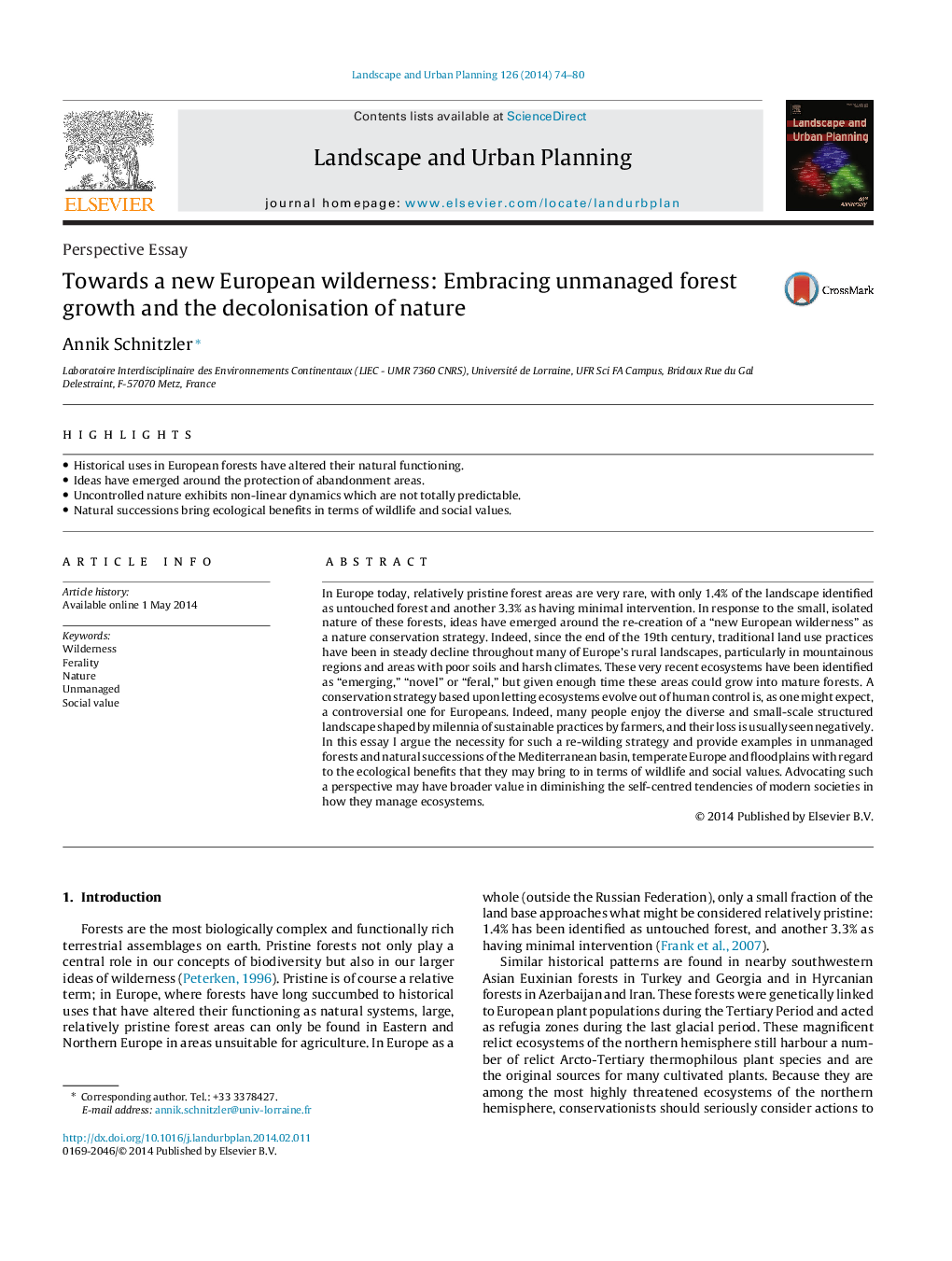| کد مقاله | کد نشریه | سال انتشار | مقاله انگلیسی | نسخه تمام متن |
|---|---|---|---|---|
| 1049234 | 1484632 | 2014 | 7 صفحه PDF | دانلود رایگان |
• Historical uses in European forests have altered their natural functioning.
• Ideas have emerged around the protection of abandonment areas.
• Uncontrolled nature exhibits non-linear dynamics which are not totally predictable.
• Natural successions bring ecological benefits in terms of wildlife and social values.
In Europe today, relatively pristine forest areas are very rare, with only 1.4% of the landscape identified as untouched forest and another 3.3% as having minimal intervention. In response to the small, isolated nature of these forests, ideas have emerged around the re-creation of a “new European wilderness” as a nature conservation strategy. Indeed, since the end of the 19th century, traditional land use practices have been in steady decline throughout many of Europe's rural landscapes, particularly in mountainous regions and areas with poor soils and harsh climates. These very recent ecosystems have been identified as “emerging,” “novel” or “feral,” but given enough time these areas could grow into mature forests. A conservation strategy based upon letting ecosystems evolve out of human control is, as one might expect, a controversial one for Europeans. Indeed, many people enjoy the diverse and small-scale structured landscape shaped by milennia of sustainable practices by farmers, and their loss is usually seen negatively. In this essay I argue the necessity for such a re-wilding strategy and provide examples in unmanaged forests and natural successions of the Mediterranean basin, temperate Europe and floodplains with regard to the ecological benefits that they may bring to in terms of wildlife and social values. Advocating such a perspective may have broader value in diminishing the self-centred tendencies of modern societies in how they manage ecosystems.
Journal: Landscape and Urban Planning - Volume 126, June 2014, Pages 74–80
